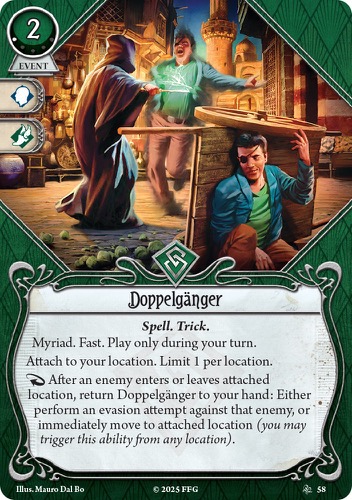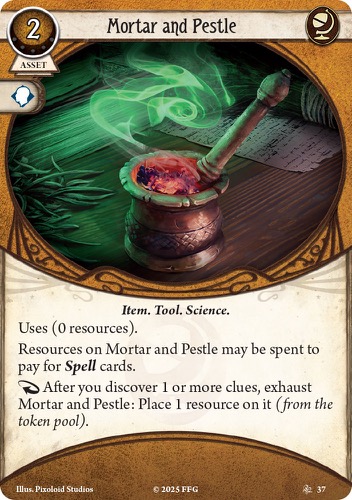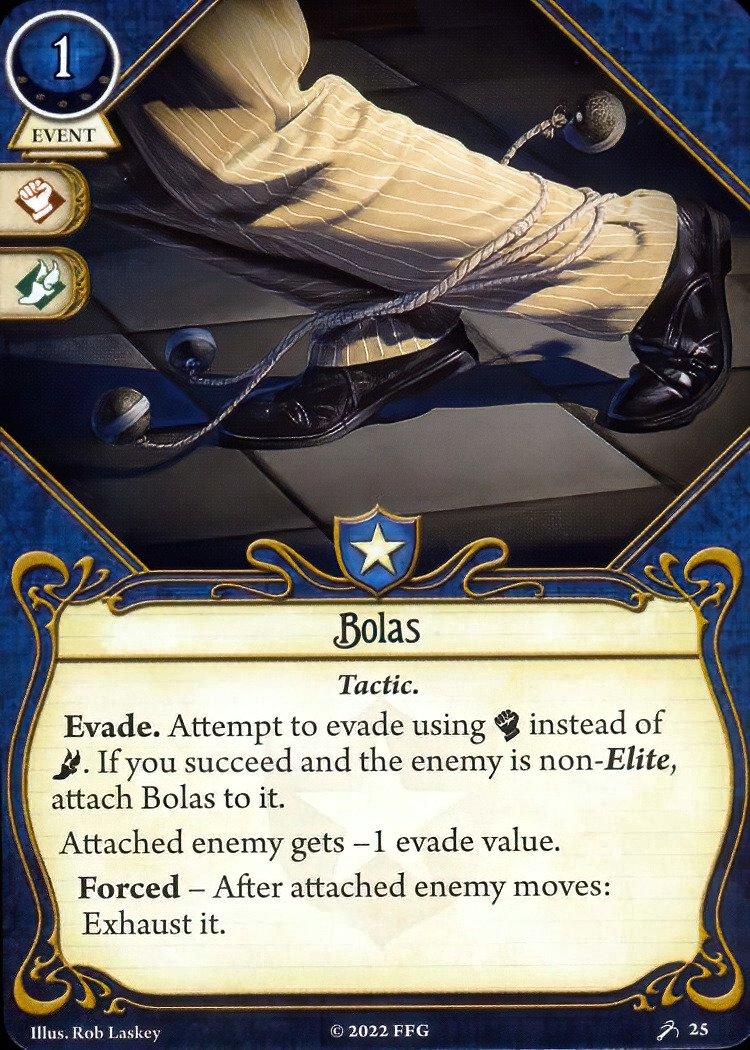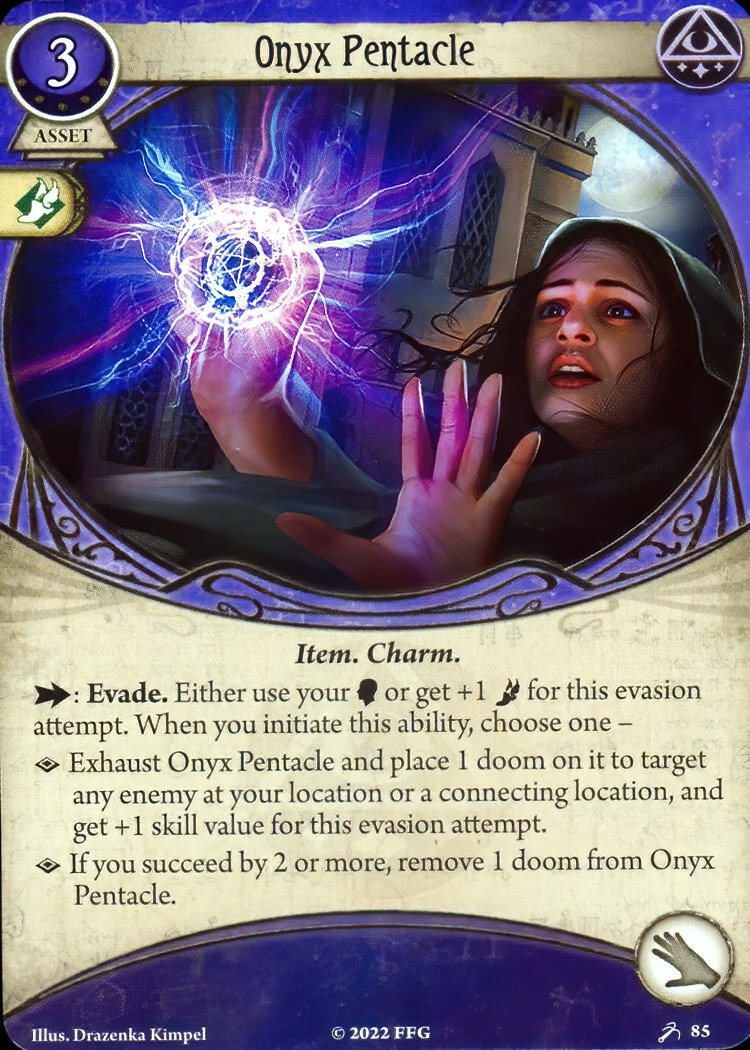
Might be kind of niche but I am building a Kymani Jones deck with this, Chuck Fergus and Bum's Rush. With the starting 5 xp you can take 2x Chuck and 3x Doppelgänger. For 4 resources and no action (or 2 resources and an action) you can discard any non-elite enemy by playing this in your room then Bum's Rush to push them out and trigger the second evade (you have to succeed 2 evades at 7 skill, but that's not too difficult and the 1 damage from Bum's Rush reduces the difficulty of Kymani's discard evade test). If you fail the first evade you still move them and get a second chance to evade from Doppelgänger.
Can also work nicely with "Where's the party?" to discard non-elites from the encounter deck. Drop a doppel in room, spawn an exhausted enemy and then evade them instantly to discard. 2 resources and an action, with Chuck able to reduce either the resources or actions needed to 0.
It's not overpowered by any means, but it is pretty neat that both of the crucial cards (Chuck is luxury here really) come from the same set, which matters as I have moved on to playing limited environment for extra challenge.



